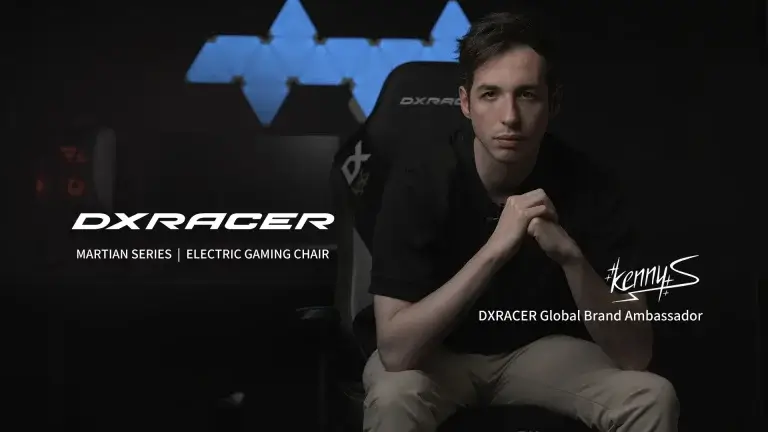Can Sustainable Gaming Companies Inspire A Greener Esports Industry?
Climate change is happening now and it will likely continue to happen in the future. We can only mitigate its effects by working now to improve our prospects of a better future. Everyone has a part to play including the gaming and esports industries.
But just how bad is the effect of esports on the environment? We know the damage fume-spewing cars and planes can cause, surely playing a few games on the console or PC isn’t anywhere near as bad?
Or is it?
What Is Esports Carbon Footprint?

There is a general feeling amongst the esports community that gaming and esports is generally a cleaner and greener option than many other industries in the world today. However, as the industry continues to grow, so does its carbon footprint and it is this which is becoming a big problem.
Esports is estimated to use 34 terawatt-hours of energy each year. That doesn’t sound much until you realise that this is the equivalent of 5 million cars on the road.
A number of companies heavily involved in the esports industry use petroleum-based substances when making their hardware. Esports executives and top-level players can rack up tens of thousands of air miles in a year moving around the globe in airplanes and jets.
Another report revealed that in the United States, the average gamer will spend $2,200 on energy over five years and will pump out 2,000 pounds of carbon into the atmosphere every year over that period, simply by playing their favourite games and esports titles.
That is the equivalent of charging a smartphone 115,000 times or driving a typical car 2,250 miles.
But what do those figures mean in global terms? Well in the United States, another study published in the Computer Games Journal estimated that in the US alone, video gamers produce 24 megatonnes of carbon dioxide per year.
That is more than the entire carbon dioxide output each year of entire countries like Sri Lanka, Estonia, and Lebanon.
Problematically, while some new technology aims to mitigate this (the move from purchasing boxed games to downloading digital copies is reckoned to produce just a fifth of the CO2 emissions and new consoles, such as the PS5 and Xbox Series X are the most energy-efficient iterations of those machines), some other new tech is even more energy inefficient, such as cloud-based streaming or VR-headsets.
What can the Esports Industry do to become cleaner and greener?
The good news is that when it comes to esports and climate action, the two different spheres of life are already intertwined and there are a number of initiatives taking place to help reduce esports carbon footprint.
Global Esports Federation Joins Sports For Climate Action Initiative
One big positive came back in March 2021 when the Global Esports Federation announced that it had joined the Sports for Climate Action initiative. This commits the esports sector towards a future of low-carbon emissions.
In addition to that, it also means that esports should be looking to promote greater environmental responsibility, promoting sustainable and responsible consumption of energy, educating others on climate action, and advocating for climate action through its major sources of communications.
By joining Sports for Climate Action, GEF has put esports on a track to a lower-carbon future. The question is, how quickly can it get there.
To do so, more may well be needed but more action is also being taken by key players within the industry.
Razer Takes Bold Steps

One company that has made numerous moves towards becoming one of the industry leading sustainable gaming companies is Razer. A short while back, the company announced that it had devised a Sneki Snek campaign to save 100,000 trees.
However, by March 2021, the campaign had been hugely successful and had already saved 100,000 trees in places like Indonesia, Madagascar, and Brazil. Impressed by the success of the campaign, Razer immediately extended the campaign, promising to save a million trees.
Alongside that, the company has recently announced a 10-year plan to become 100% carbon neutral by 2030. To that end, two more regional headquarters, one in the US and another in Southeast Asia, will follow the facility in Hamburg in running on 100 percent renewable energy.
Furthermore, Razer has promised to ensure all its products can be recycled by 2030 and will offer free collection sites at retailer locations to aid collection of recyclable products. New products will be made from post-consumer recycled plastic. All packaging for items will also be biodegradable too.
In addition, Razer’s corporate arm zVentures will look at promoting and investing in eco-friendly startups.
Razer’s move is a positive one and echoes moves by other companies such as Logitech and Astro Gaming, who already have adopted PCR plastics in a number of product lines.
Changing the way items are manufactured, packaged, and promoting sustainability across all areas of the company is something that the esports industry needs to adopt wholesale and following the actions shown by Razer is a good starting point for many companies.
What Can I Do As A Gamer To Help?

Of course, we can look at the major players in the esports industry and demand that they take action on climate change and to reduce their carbon footprint, but with hundreds of millions engaged in esports or gaming as either viewers or players, what can an individual do to help mitigate esports impact on the environment and promote a more responsible attitude towards natural resources?
There are many simple steps you can take as a gamer, from supporting only those companies that are serious about tackling climate change and who are engaging in practices to at least reduce their carbon footprint, if not become carbon neutral at some point in the future.
But there is more you can do too. Switching off your gaming console when away from the screen, turning on any eco-mode options on your TV, console, or similar can all make a big impact if everybody follows suit.
Most gamers know plenty of ways that they can become ‘greener’ but the question is whether they have the motivation to do so, especially when the alternative maybe a little more inconvenient.
Another thing you can do as a gamer to help out is to play some of the esports games that are about many of the issues to do with climate change available today. These games may not be as popular as the likes of CS:GO or League of Legends
A number of Indie developers have released a number of games that are potentially exciting esports titles. This includes E-Line Media’s Beyond Blue, which was developed in conjunction with the acclaimed BBC TV programme series Blue Planet. This focuses ostensibly on climate issues to do with the ocean.
For a look at the issues facing living things on land, Herobeat Studios Endling, where the player takes on the role of a mother fox looking after her cub, has been met with great approval from players.
Another game that addresses the need for management of resources, recycling and climate change is the intelligently designed Temtem, a game that has already seen 30,000 concurrent players during the first week of release on Steam. Other games deal with issues that are now facing us, including Bee Simulator, which explores the issues of the declining numbers of bees and the impact that this can have on life on earth.
Will Sustainable Gaming Make A Difference?
Given that the current esports industry and gaming in general exacts a fierce toll on the planet, not only will these different green initiatives make a difference, but many would also argue that they are necessary and long overdue.
The entire esports ecosystem needs to think green and think about how to achieve it quickly.
Sustainable gaming companies are an inevitable future for the esports industry. It has to be that way, as it is increasingly apparent that the planet cannot sustain another huge industry that exacts such a drain on its finite resources.
Therefore, any initiatives to tackle the issue of esports carbon footprint are welcome. The question the industry needs to ask itself is whether it is enough.
And it is a question that needs to be asked, and then answered, before it is too late.
Read also: Technology Trends and esports markets – a symbiotic partnership





















